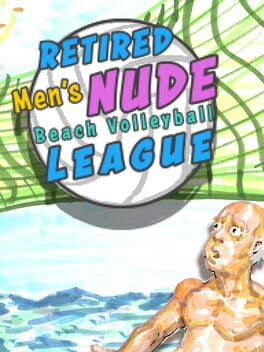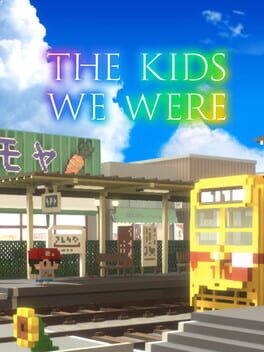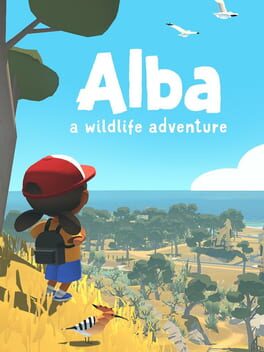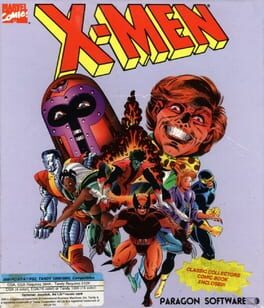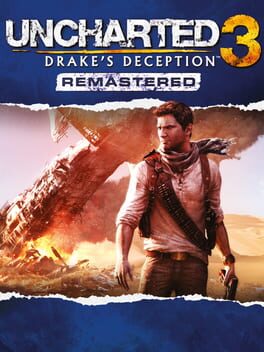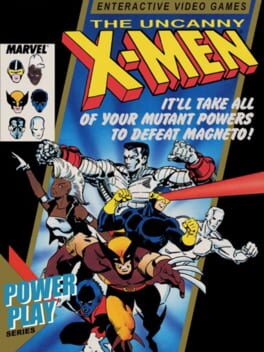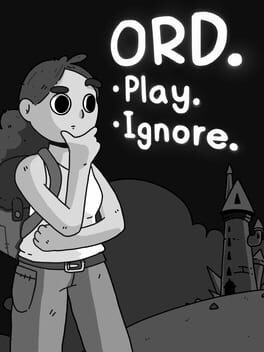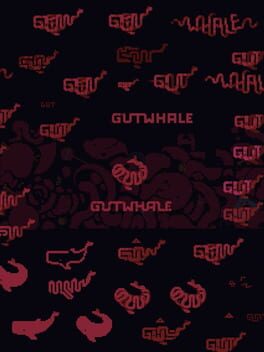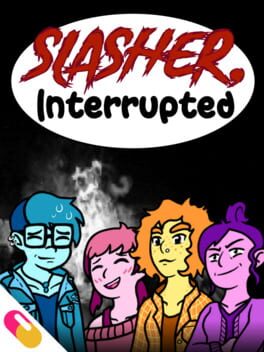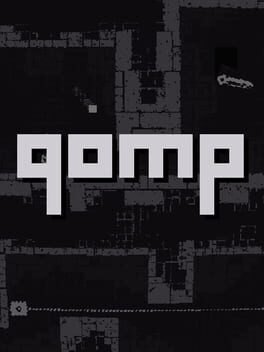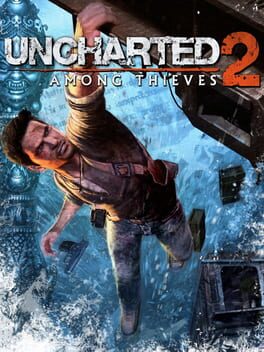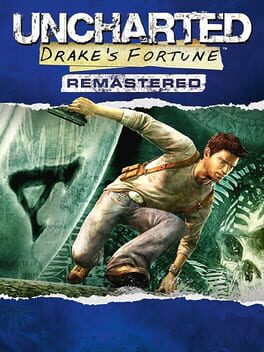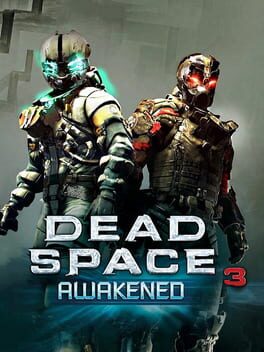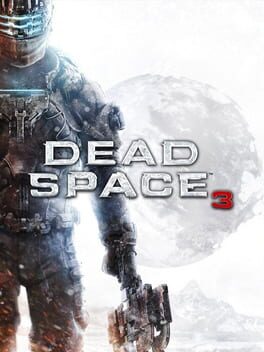Retired Men's Nude Beach Volleyball League es un juego de voley extremadamente simple que adorna una confesión personal que me ha pegado con la fuerza de una apisonadora. La incomunicación ha sido una obsesión que me ha acompañado toda la vida, y los inicios de este juego la tratan con una poesía que creo que merece admirarse. Donde empieza a perderme es cuando decide traspasar su artificio y arrojarte hacia una moraleja final. Cada día estoy más convencido del daño que Barlow y Mullins han traído a nuestra capacidad para escribir poesía con el medio.
En cuanto a cómo se juega, no puedo decir que se trate de una obra profunda, pero tampoco tengo tanta experiencia con simuladores de voley. Paddle Mania es mi referente más cercano para juzgar estas cosas. Pero creo que la decisión de esconder el aspecto inacabado de la obra con la ficción del programador anciano está bien, aunque demasiado conveniente.
----------------------------------
Retired Men's Nude Beach Volleyball League is an extremely simple volleyball game that hides a personal confession that hits me like a steamroller. Lack of communication has been a lifelong obsession of mine, and the first stages of the game treat it with a poetry that deserves recognition. Where it starts to lose me is when it decides to go beyond its artifice and moralize you. Every day I am more convinced that Barlow and Mullins are harming our ability to write games more beautifully.
As for how it plays, I can't say it's a deep piece of work, but then again, I don't have that much experience with volleyball simulators either. Paddle Mania is my closest benchmark for judging these things. But I think the decision to hide the unfinished aspect of the play with the fiction of the aging programmer is fine, if a bit too convenient.
En cuanto a cómo se juega, no puedo decir que se trate de una obra profunda, pero tampoco tengo tanta experiencia con simuladores de voley. Paddle Mania es mi referente más cercano para juzgar estas cosas. Pero creo que la decisión de esconder el aspecto inacabado de la obra con la ficción del programador anciano está bien, aunque demasiado conveniente.
----------------------------------
Retired Men's Nude Beach Volleyball League is an extremely simple volleyball game that hides a personal confession that hits me like a steamroller. Lack of communication has been a lifelong obsession of mine, and the first stages of the game treat it with a poetry that deserves recognition. Where it starts to lose me is when it decides to go beyond its artifice and moralize you. Every day I am more convinced that Barlow and Mullins are harming our ability to write games more beautifully.
As for how it plays, I can't say it's a deep piece of work, but then again, I don't have that much experience with volleyball simulators either. Paddle Mania is my closest benchmark for judging these things. But I think the decision to hide the unfinished aspect of the play with the fiction of the aging programmer is fine, if a bit too convenient.
2020
Como reflejo de cierto tipo de historias que autores como Makoto Shinkai y Naoko Yamada han puesto de moda, The Kids we Were es un aporte exitoso, que tampoco original, de la ola de obras nostálgicas recientes que están tratando de recuperarle la vitalidad a la generación de la Década Perdida. Principalmente, tratan de hacerlo haciendo que se pregunten cosas como: ¿Han tratado de mantener la ilusión de su infancias? ¿Han perdido algo en su viaje a la madurez? ¿Qué deberían cambiar, si quisieran volver a tenerla? The Kids we Were tantea con las líneas más severas de este género y navega temáticas y situaciones duras, parecidas al trabajo de Yuro Somino, pero no se atreve a aterrizar esas conclusiones. Una lectura amable defenderá esta decisión diciendo que GAGEX no quiere terminar su juego de 6 horas con una nota amarga, e invita a que interpretes la heroica sección final como una escapada al lago, como Tim Burton y su final imaginado de Big Fish. Hasta donde sé, puedo decir que me alegra que hayamos llegado a un punto en el que el turismo japonés nostálgico ha podido volverse un poco más mordiente y atrevido que algo como Nostalgic Train (que espero que podamos dejar atrás para siempre). Pero incluso una mirada irónica y despegada como ésta sigue insistiendo en las mismas consignas una y otra vez desde 2007 con 5 Centímetros por Segundo. Creo que ha llegado la hora de que este género avance en sus tesis.
----------------------------
Reflecting on a certain type of story that authors like Makoto Shinkai and Naoko Yamada have made fashionable, The Kids We Were is a successful, if not original, contribution to the wave of recent nostalgic works that try to re-instill some sense of wonder on the Lost Decade generation, mainly by making them ponder about things like: Have they tried to maintain the illusion of their childhood? Have they lost something in their journey to maturity? What should they change, if they wanted to recover it? The Kids we Were tinkers with the more severe lines of this genre and navigates tough themes and situations that are similar to works from authors like Yuro Somino, but does not dare to land near their conclusions. A kind interpretation of this will argue this decision by saying that GAGEX doesn't want to end its 6-hour romp on a sour note, and invites you to interpret the heroic finale as a somewhat dreamlike ending, a la Tim Burton in Big Fish. As far as I can tell, I'm glad we've reached a point where nostalgic Japanese tourism has been able to become a bit more biting and daring than something like Nostalgic Train (which I hope we can finally put behind). But even a wry, detached look like this still harps on the same slogans since 2007's 5 Centimeters Per Second. I think it's time for the genre to move on.
----------------------------
Reflecting on a certain type of story that authors like Makoto Shinkai and Naoko Yamada have made fashionable, The Kids We Were is a successful, if not original, contribution to the wave of recent nostalgic works that try to re-instill some sense of wonder on the Lost Decade generation, mainly by making them ponder about things like: Have they tried to maintain the illusion of their childhood? Have they lost something in their journey to maturity? What should they change, if they wanted to recover it? The Kids we Were tinkers with the more severe lines of this genre and navigates tough themes and situations that are similar to works from authors like Yuro Somino, but does not dare to land near their conclusions. A kind interpretation of this will argue this decision by saying that GAGEX doesn't want to end its 6-hour romp on a sour note, and invites you to interpret the heroic finale as a somewhat dreamlike ending, a la Tim Burton in Big Fish. As far as I can tell, I'm glad we've reached a point where nostalgic Japanese tourism has been able to become a bit more biting and daring than something like Nostalgic Train (which I hope we can finally put behind). But even a wry, detached look like this still harps on the same slogans since 2007's 5 Centimeters Per Second. I think it's time for the genre to move on.
Tal vez se deba al hecho de que la naturaleza tan idealizada de este libro de colores para adultos contrasta mucho con mi propia experiencia de niño, pero hay cierto carácter impostado en las formas de este juego que me echa un poco para atrás. Lo peor de todo, en mi opinión, es que a las criaturas de esta historia no se les permite, ante todo, ser criaturas. En vez de jugar a explorar por tu cuenta, meterte en líos e ir un poco a la tuya por la isla del Secarral (ya sea para matar el aburrimiento o incordiar a tu familia), juegas el papel de una niña híper-idealizada que puede hacer literalmente cualquier cosa que se le proponga. A un juego con tan poca profundidad se le va la vida, en mi opinión, cuando intenta meterte muchas tareas a la vez. Al final, lo único que haces es recolectar y rellenar el cuaderno de las tareas, y no creo que eso esa lo que unas vacaciones deberían ser.
--------------------------------------------
Perhaps it's due to the fact that this adult coloring book contrasts so sharply with my own experience as a child that used to vacation in a similar place, but there's a fakeness to this work that turns me off. The clearest example I can offer is that the children of the game are never allowed to act as children. Instead of exploring on your own or getting into shenanigans because you want to kill boredom or annoy your family, you act as this highly idealized girl who's the best at everything they ask her to be. A game with so little depth loses me when it tries to cram so many tasks at once. In the end, all you're doing is collecting and filling in your notebook, which is not what vacations should be about.
--------------------------------------------
Perhaps it's due to the fact that this adult coloring book contrasts so sharply with my own experience as a child that used to vacation in a similar place, but there's a fakeness to this work that turns me off. The clearest example I can offer is that the children of the game are never allowed to act as children. Instead of exploring on your own or getting into shenanigans because you want to kill boredom or annoy your family, you act as this highly idealized girl who's the best at everything they ask her to be. A game with so little depth loses me when it tries to cram so many tasks at once. In the end, all you're doing is collecting and filling in your notebook, which is not what vacations should be about.
2023
Por encima de todo, este mod es muy cool. Es dinámico, incentiva la exploración y se trata de un puzzle entretenido de resolver. Pero más allá de eso, es una carta de amor a una comunidad tan llena de ideas y creatividad que no puedes evitar sentirte bien jugando a el. Su estilo mecánico puede sentirse alejado de la fórmula que mucha gente entiende que Doom fue, pero este juego está más cerca del Doom original que su remake.
He escrito sobre My House en Nivel Oculto, por si queréis leer más: https://niveloculto.com/analisis-my-house-wad/
---------------------
Firstly, this mod is very cool. It's dynamic, it encourages exploration, and it's an entertaining puzzle to solve. But beyond that, it's a love letter to a community so full of ideas that you can't help but feel good playing it. Its mechanical style may feel far removed from the formula that many people think the original Doom was about, but this game is closer to the originals than their remakes by a mile.
He escrito sobre My House en Nivel Oculto, por si queréis leer más: https://niveloculto.com/analisis-my-house-wad/
---------------------
Firstly, this mod is very cool. It's dynamic, it encourages exploration, and it's an entertaining puzzle to solve. But beyond that, it's a love letter to a community so full of ideas that you can't help but feel good playing it. Its mechanical style may feel far removed from the formula that many people think the original Doom was about, but this game is closer to the originals than their remakes by a mile.
Dejadme que os diga algo a todes les que os quejáis de que no se puede jugar a esto: os falta calle.
X-Men: Madness in Murderworld es, a mi juicio, el primero intento serio de trasladar la dinámica y ritmos de los cómics más conocidos de la Patrulla X (los escritos por Chris Claremont entre los años 70 y 90) a un modelo de juego que intenta situarte en un punto intermedio entre la acción sin ritmo del juego de NES (producido aparte, pero con ideas muy similares), y un juego de exploración y plataformas tradicional de ordenador, a lo Moctezuma o Dangerous Dave. Como tal, es un juego que requiere cierta mentalidad de resolución de puzzles para poder solventarse, con un poquito de lógica de aventura gráfica metida de por medio. En algunos aspectos, la edad y época en la que salió este juego actúan en su contra: la posibilidad de arruinar tu partida casi al principio (guardad SIEMPRE que vayáis a usar los poderes de los mutantes en cualquier objeto, no sea que se destruya) me hizo tener que repetir las casi tres horas de partida que llevaba encima. Al mismo tiempo, este juego carece de algo que ninguna obra de ordenador iba a poder ofrecerte en la época, más allá de Commander Keen, y eso era buenas mecánicas de colisión. Luchar contra la mayoría de jefes y monstruos en este juego es un asunto de machacar botones y, en ocasiones, desarrollar un ritmo que te permita esquivar el ataque del enemigo cada vez.
Todos estos elementos son engorrosos para alguien acostumbrade al pulido moderno de la mayoría de títulos. Pero para alguien que sepa cómo se jugaba en la época, me atrevo a decir que era de lo mejorcito que podías encontrar. Francamente, más allá de ese detalle menor, si eres capaz de apreciar la variedad de puzzles y secretos que este juego ofrece (y los guiños que hace a los cómics, algunos de ellos muy concretos), seguramente te parezca uno de los mejores títulos basados en los X-men del momento.
-----------------------------------
Let me say something upfront to everyone who complains about this game being unplayable: you lack the smarts.
X-Men: Madness in Murderworld is, in my opinion, the first serious attempt to transfer the dynamics and rhythms of the X-Men comics (at least those written by Chris Claremont between the 70s and 90s) to a system that translates them somewhere in between the arcade slog of the NES game (produced separately but with similar ideas) and a traditional computer action game, a la Montezuma or Dangerous Dave. As such, it's a game that requires some puzzle-solving and a little bit of graphic adventure logic to be thwarted. In some respects, its age works against it: getting the chance to ruin your game almost instantly (ALWAYS save whenever you want to use your mutant powers) forced me to redo almost three hours of gameplay. At the same time, this game lacks the same thing that every computer game lacked at the time (beyond Commander Keen), which was good collisions. Fighting bosses and monsters in this game is a matter of button mashing and, at times, rhythmically moving around to dodge the attacks.
All of these elements are cumbersome for someone used to modern polishes. But for someone who knows how games used to be, I dare say it was one of the best you could find. Frankly, beyond these minor elements, I think the sheer variety of puzzles and secrets (and the nods it makes toward to the original comic books) makes it one of the best X-men titles of the period.
X-Men: Madness in Murderworld es, a mi juicio, el primero intento serio de trasladar la dinámica y ritmos de los cómics más conocidos de la Patrulla X (los escritos por Chris Claremont entre los años 70 y 90) a un modelo de juego que intenta situarte en un punto intermedio entre la acción sin ritmo del juego de NES (producido aparte, pero con ideas muy similares), y un juego de exploración y plataformas tradicional de ordenador, a lo Moctezuma o Dangerous Dave. Como tal, es un juego que requiere cierta mentalidad de resolución de puzzles para poder solventarse, con un poquito de lógica de aventura gráfica metida de por medio. En algunos aspectos, la edad y época en la que salió este juego actúan en su contra: la posibilidad de arruinar tu partida casi al principio (guardad SIEMPRE que vayáis a usar los poderes de los mutantes en cualquier objeto, no sea que se destruya) me hizo tener que repetir las casi tres horas de partida que llevaba encima. Al mismo tiempo, este juego carece de algo que ninguna obra de ordenador iba a poder ofrecerte en la época, más allá de Commander Keen, y eso era buenas mecánicas de colisión. Luchar contra la mayoría de jefes y monstruos en este juego es un asunto de machacar botones y, en ocasiones, desarrollar un ritmo que te permita esquivar el ataque del enemigo cada vez.
Todos estos elementos son engorrosos para alguien acostumbrade al pulido moderno de la mayoría de títulos. Pero para alguien que sepa cómo se jugaba en la época, me atrevo a decir que era de lo mejorcito que podías encontrar. Francamente, más allá de ese detalle menor, si eres capaz de apreciar la variedad de puzzles y secretos que este juego ofrece (y los guiños que hace a los cómics, algunos de ellos muy concretos), seguramente te parezca uno de los mejores títulos basados en los X-men del momento.
-----------------------------------
Let me say something upfront to everyone who complains about this game being unplayable: you lack the smarts.
X-Men: Madness in Murderworld is, in my opinion, the first serious attempt to transfer the dynamics and rhythms of the X-Men comics (at least those written by Chris Claremont between the 70s and 90s) to a system that translates them somewhere in between the arcade slog of the NES game (produced separately but with similar ideas) and a traditional computer action game, a la Montezuma or Dangerous Dave. As such, it's a game that requires some puzzle-solving and a little bit of graphic adventure logic to be thwarted. In some respects, its age works against it: getting the chance to ruin your game almost instantly (ALWAYS save whenever you want to use your mutant powers) forced me to redo almost three hours of gameplay. At the same time, this game lacks the same thing that every computer game lacked at the time (beyond Commander Keen), which was good collisions. Fighting bosses and monsters in this game is a matter of button mashing and, at times, rhythmically moving around to dodge the attacks.
All of these elements are cumbersome for someone used to modern polishes. But for someone who knows how games used to be, I dare say it was one of the best you could find. Frankly, beyond these minor elements, I think the sheer variety of puzzles and secrets (and the nods it makes toward to the original comic books) makes it one of the best X-men titles of the period.
El último título oficial de la saga de Nathan Drake y el último juego de Naughty Dog antes de que entrara en la Era de Druckman y se volviera aún más pretencioso, inseguro de sí mismo y explotador, es también el título de Uncharted que se me ha hecho menos cuesta arriba. Claro que eso tampoco quiere decir que tenga muchas cosas buenas que decir sobre él. Desde el principio ha sido obvio que los juegos de esta saga aspiraban a recrear, en clave estética que no jugable, los altos vuelos de una película de aventuras y la grandiosidad del cine épico de Hollywood. Por el camino, seguramente, se esperaba que esta aproximación artística también crearía la misma profundidad filosófica o espiritual que una obra como En Busca del Arca Perdida o La Última Cruzada lograron alcanzar. Pero como siempre, lo que esta manera de imitar de forma tan servil ha demostrado una y otra vez desde principios de siglo es que, si te posiciones desde el principio como une artista endeuade a las tradiciones de otros medios, los resultados nunca traerán nada mejor que En Busca del Templo Maldito o La Calavera de Cristal.
El equipo guionista hace esfuerzos titánicos para que la fórmula funcione, y tal vez por eso esta historia me resulte la menos cargante de las tres (aunque me descubro echando de menos la simpleza del primer Uncharted, mucho más cercano a los Tomb Raider que mira tan por encima del hombro). Pero por el camino, el diseño de niveles se ha rendido por completo al formato de pasillos emperifollados a los que la franquicia siempre iba apuntando desde el principio. La relativa variedad que ofrecen los encuentros-arena queda siempre subordinada a la secuencia de acción más óptima: destruye siempre a los tanques, luego a los francotiradores, luego a los tipos con armadura y si acaso ya te vas encargando del resto a tu ritmo. El modo sigilo que aportará tanto dinamismo a The Last of Us aún es un proyecto a medio hacer. Y las secuencias de salto, como viene siendo habitual, son poco más que un ejercicio de saber a dónde apunta la cámara y saltar hacia allí. Lo único que nos queda por juzgar (más allá del extremadamente simple sistema de combate cuerpo a cuerpo) son las largas secuencias andando en las que el juego nos invita a adoptar un ritmo más lento, o pensar la solución a un puzzle, o dejarnos llevarnos por la historia. Y como ya he dado a entender antes, el esfuerzo es admirable en más de un aspecto, pero el impacto de estos caminos de baldosas amarillas queda en entredicho cuando cualquier actuación de carne y hueso aporta más energía que estas agotadas voces de doblaje y estos risibles conjuntos de polígonos animados.
Escribiré sobre esto de forma más fría, pero creo que mi principal observación de estos juegos, por lo menos ahora, es que son extremadamente anti-jugadore. En ningún momento dejé de sentirme como si estuviera interfiriendo el drama de instituto de une profesore de teatro, y aunque participar está bien, siempre acabé con un agujero en el estómago y, por qué no admitirlo, con un poquito de rencor por no haberme dejado improvisar.
------------------------
The last title of the Nathan Drake trilogy, and the last Naughty Dog game before it entered the Druckman Era and became more pretentious, self-conscious and exploitative than ever, it's also the Uncharted title that I've found to be the least tedious to finish. Of course, that's doesn't mean I have many good things to say about it. It's been always obvious that these games have aspired from the beginning to reach the same highs, at least aesthetically, of adventure movies like Raiders of the Lost Ark and epic movies like Lawrence of Arabia. It does feel like they hoped that by copying the surface elements of these movies they would be able, somehow, to reach the philosophical or spiritual depth that a work like The Last Crusade managed to achieve. But as always, what this slavishly imitative approach has proven time and again since the turn of the century is that, if you deliberately put yourself below the artistic heights of other media, you'll be only be able to achieve medioucre results that won't be that much better from Temple of Doom or The Kingdom of the Crystal Skull.
The writers here have made a herculean effort trying to make this work, though, and perhaps that's why I find this game to have the least annoying story of them all- though more and more I'm finding myself longing for the simplicity and Tomb Raider-esque approach that the first Uncharted took, despite obviously trying to distance from them. But along the way, however, the level design of the game has completely surrendered to the stripped down corridors format that they seemingly wanted to fall into. The variety offered by arena encounters is always resolved through the same sequence: always begin with the tanks, then the snipers, then the armored guys, and eventually you'll take care of the rest. The stealth mode that will bring so much dynamism to The Last of Us is still half-baked here. And the jump sequences, as usual, are little more than an exercise in knowing where the camera is pointing at and jumping there. The only thing left for us to judge (beyond the extremely simple melee combat system) are the long walking sequences in which the game invites us to slower our pace, or solving a puzzle, or ponder about the story. And as I've implied before, the effort is admirable on its own, but the impact of these yellow-bricked roads is undermined when any flesh-and-blood performance brings more energy than these exhausted voice-overs and laughable polygons.
I'll write about this more coldly, but I think my main contention with these games now is that they are extremely anti-player. At no point did I ever stop feeling like I was inside a teacher's high school theater project, and while participating was fine, I ended up confused and a little bit upset that they didn't let me improvise a little along the performance.
El equipo guionista hace esfuerzos titánicos para que la fórmula funcione, y tal vez por eso esta historia me resulte la menos cargante de las tres (aunque me descubro echando de menos la simpleza del primer Uncharted, mucho más cercano a los Tomb Raider que mira tan por encima del hombro). Pero por el camino, el diseño de niveles se ha rendido por completo al formato de pasillos emperifollados a los que la franquicia siempre iba apuntando desde el principio. La relativa variedad que ofrecen los encuentros-arena queda siempre subordinada a la secuencia de acción más óptima: destruye siempre a los tanques, luego a los francotiradores, luego a los tipos con armadura y si acaso ya te vas encargando del resto a tu ritmo. El modo sigilo que aportará tanto dinamismo a The Last of Us aún es un proyecto a medio hacer. Y las secuencias de salto, como viene siendo habitual, son poco más que un ejercicio de saber a dónde apunta la cámara y saltar hacia allí. Lo único que nos queda por juzgar (más allá del extremadamente simple sistema de combate cuerpo a cuerpo) son las largas secuencias andando en las que el juego nos invita a adoptar un ritmo más lento, o pensar la solución a un puzzle, o dejarnos llevarnos por la historia. Y como ya he dado a entender antes, el esfuerzo es admirable en más de un aspecto, pero el impacto de estos caminos de baldosas amarillas queda en entredicho cuando cualquier actuación de carne y hueso aporta más energía que estas agotadas voces de doblaje y estos risibles conjuntos de polígonos animados.
Escribiré sobre esto de forma más fría, pero creo que mi principal observación de estos juegos, por lo menos ahora, es que son extremadamente anti-jugadore. En ningún momento dejé de sentirme como si estuviera interfiriendo el drama de instituto de une profesore de teatro, y aunque participar está bien, siempre acabé con un agujero en el estómago y, por qué no admitirlo, con un poquito de rencor por no haberme dejado improvisar.
------------------------
The last title of the Nathan Drake trilogy, and the last Naughty Dog game before it entered the Druckman Era and became more pretentious, self-conscious and exploitative than ever, it's also the Uncharted title that I've found to be the least tedious to finish. Of course, that's doesn't mean I have many good things to say about it. It's been always obvious that these games have aspired from the beginning to reach the same highs, at least aesthetically, of adventure movies like Raiders of the Lost Ark and epic movies like Lawrence of Arabia. It does feel like they hoped that by copying the surface elements of these movies they would be able, somehow, to reach the philosophical or spiritual depth that a work like The Last Crusade managed to achieve. But as always, what this slavishly imitative approach has proven time and again since the turn of the century is that, if you deliberately put yourself below the artistic heights of other media, you'll be only be able to achieve medioucre results that won't be that much better from Temple of Doom or The Kingdom of the Crystal Skull.
The writers here have made a herculean effort trying to make this work, though, and perhaps that's why I find this game to have the least annoying story of them all- though more and more I'm finding myself longing for the simplicity and Tomb Raider-esque approach that the first Uncharted took, despite obviously trying to distance from them. But along the way, however, the level design of the game has completely surrendered to the stripped down corridors format that they seemingly wanted to fall into. The variety offered by arena encounters is always resolved through the same sequence: always begin with the tanks, then the snipers, then the armored guys, and eventually you'll take care of the rest. The stealth mode that will bring so much dynamism to The Last of Us is still half-baked here. And the jump sequences, as usual, are little more than an exercise in knowing where the camera is pointing at and jumping there. The only thing left for us to judge (beyond the extremely simple melee combat system) are the long walking sequences in which the game invites us to slower our pace, or solving a puzzle, or ponder about the story. And as I've implied before, the effort is admirable on its own, but the impact of these yellow-bricked roads is undermined when any flesh-and-blood performance brings more energy than these exhausted voice-overs and laughable polygons.
I'll write about this more coldly, but I think my main contention with these games now is that they are extremely anti-player. At no point did I ever stop feeling like I was inside a teacher's high school theater project, and while participating was fine, I ended up confused and a little bit upset that they didn't let me improvise a little along the performance.
1989
El primer juego dedicado a la Patrulla X de consola es un híbrido extraño entre el formato de mazmorreo típido de Hydlide y Zelda y los niveles a elegir de Megaman. Para ser el primer título, me soprende lo mucho que me recuerda a juegos posteriores como X-Men Legends, que imitarán con mucha más devoción este aún naciente estilo de juego que Diablo no tardaría en congelar.
No voy a defenderlo ni nada por el estilo. Es obvio que se hizo con prisa y poco testeo, y como suele pasar con juegos de esta época, la idea de tener que repetir todo de nuevo cuando te quedas sin personajes se hace terrorífica. Pero al margen de eso, se trata de un juego que como mínimo puedes jugar y en el que puedes avanzar. Sólo por eso está por encima de muchos contemporáneos. Su conexión hacia la franquicia original es testimonial, pero si miráis cualquier obra derivada de Marvel de la época, se trataba de la norma antes que la excepción. Con un poco más de esfuerzo en hacer a los personajes más completos, un sistema de guardado y un mayor refinado en las colisiones, este podría haber sido un juego decente.
------------------------
The first game dedicated to the X-People on console is a strange hybrid between a dungeon crawler a la Hydlide and Zelda and the stage selection of Megaman. For something this old, I'm surprised at how much it resembles later titles like X-Men Legends, which will mimic this still nascent style by following much more closely the Diablo formula.
I'm not going to defend it or anything. It's obvious that it was made hastily and with little testing, and as it usually happens with games of this period, the idea of having to redo everything when running out of characters is terrifying. But aside from that, it's a title that at the very least can be played and beaten with skill. For that reason alone it stands apart several contemporaries. Its connection to the mutant's franchise is merely incidental, but if you look at any Marvel spin-off of the time, that was quite the norm. With a little more effort put into the characters, a saving system and more refined collisions, this could have been a decent game.
No voy a defenderlo ni nada por el estilo. Es obvio que se hizo con prisa y poco testeo, y como suele pasar con juegos de esta época, la idea de tener que repetir todo de nuevo cuando te quedas sin personajes se hace terrorífica. Pero al margen de eso, se trata de un juego que como mínimo puedes jugar y en el que puedes avanzar. Sólo por eso está por encima de muchos contemporáneos. Su conexión hacia la franquicia original es testimonial, pero si miráis cualquier obra derivada de Marvel de la época, se trataba de la norma antes que la excepción. Con un poco más de esfuerzo en hacer a los personajes más completos, un sistema de guardado y un mayor refinado en las colisiones, este podría haber sido un juego decente.
------------------------
The first game dedicated to the X-People on console is a strange hybrid between a dungeon crawler a la Hydlide and Zelda and the stage selection of Megaman. For something this old, I'm surprised at how much it resembles later titles like X-Men Legends, which will mimic this still nascent style by following much more closely the Diablo formula.
I'm not going to defend it or anything. It's obvious that it was made hastily and with little testing, and as it usually happens with games of this period, the idea of having to redo everything when running out of characters is terrifying. But aside from that, it's a title that at the very least can be played and beaten with skill. For that reason alone it stands apart several contemporaries. Its connection to the mutant's franchise is merely incidental, but if you look at any Marvel spin-off of the time, that was quite the norm. With a little more effort put into the characters, a saving system and more refined collisions, this could have been a decent game.
2019
No hay mucho que decir de Ord. Es un juego simple, con una ejecución básica pero muy efectiva, y aquí la vemos retorcerse para adaptarse a todas las posibilidades que imaginan. El único detalle que no acabo de verle es el paso de una historia como World, que ofrece tantas posibilidades, a una como Foul Things, que las cierra tanto. Pero me imagino a mucha más gente empleando este molde para hacer cosas nuevas.
----------------------------
There's not much to say about Ord. It's a simple game, with a basic but very effective execution, and here we see it twisted to fit almost every option. The only detail I'm hesitant about is moving from a story like World, which offers so many possibilities, to one like Foul Things, which ensnares them. But I can imagine so many people using this mold to do new things.
----------------------------
There's not much to say about Ord. It's a simple game, with a basic but very effective execution, and here we see it twisted to fit almost every option. The only detail I'm hesitant about is moving from a story like World, which offers so many possibilities, to one like Foul Things, which ensnares them. But I can imagine so many people using this mold to do new things.
2020
No acabé de pillarle el punto a este juego. En parte se debe a que la falta de movimientos me produjo una sensación de asfixia, pero en parte también porque no soy muy fan de los Roguelikes. El hecho de que sea un juego tan corto y acumulativo hace que tener que pasarme los tres niveles una y otra vez me produzca pereza.
----------------------------------------
Couldn't manage to get the hang of this game. Partly it's because the lack of movement, which made me feel anxious, but also partly because I'm not a big fan of Roguelikes. The fact that it's such a short, cumulative title makes having to play through all three levels an unsurmountable task.
----------------------------------------
Couldn't manage to get the hang of this game. Partly it's because the lack of movement, which made me feel anxious, but also partly because I'm not a big fan of Roguelikes. The fact that it's such a short, cumulative title makes having to play through all three levels an unsurmountable task.
Una versión reducida de We Know the Devil con una premisa mucho más relajada y sencilla, aunque con vagas evocaciones de ansiedad. Como muchos juegos de este estilo, siento que trata de alcanzar un equilibrio muy fino entre relajarte y ponerte nerviose, pero al ser tan corto, no tiene tiempo para retorcerse tanto como para desmoronarse. Perfecto para los 10 minutos que se propuso llenar.
-------------------------------------
A pared down version of We Know the Devil with a much more relaxed and simpler premise, albeit with vague anxiety moments. Like many games of this style, it seems like it tries to strike a balance between relaxing and unnerving you, but being so short, it doesn't have the time to fail. Perfect for the 10 minutes it set out to fill.
-------------------------------------
A pared down version of We Know the Devil with a much more relaxed and simpler premise, albeit with vague anxiety moments. Like many games of this style, it seems like it tries to strike a balance between relaxing and unnerving you, but being so short, it doesn't have the time to fail. Perfect for the 10 minutes it set out to fill.
2021
No sé por dónde empezar. Uncharted: Drake's Fortune es, pese a todos los defectos que le veo, una aventurilla al uso de plataformas limitado y acción simplona, que cuanto menos se deja jugar. Uncharted 2, como todas las secuelas triple A, trata de incluir más cosas, y en el camino se convierte en un batiburrillo incoherente de ideas y elementos que puedes encontrar mejor expresados en cualquier otro lado. Esto hace que, para mí, recomendar el juego en base a su mérito lúdico resulte imposible. Las secciones de sigilo apenas permiten variedad y se suelen limitar a seguir el camino trazado de antemano, los puzzles son poco más que un juego de memorización y espera, y las armas se solapan entre sí. La oportunidad de desarrollar estrategias personales de combate, que podrían tener sentido dado el carácter más de arena que tienen esas secuencias, ofrece cierto dinamismo en los modos más difíciles, pero el ridículo modo Brutal te fuerza a situaciones de completo desgaste, donde la única opción aceptable es quedarte en una esquina y rezar porque no te llegue una bala suelta (jugar estos niveles de dificultad sin trucos es imposible).
Todo esto hace que jugar a Uncharted 2 sea más molesto que el estilo simple pero, al menos, directo, del primero, pero si a eso le sumas una narración que sólo puedo calificar como de "culpa blanca a lo Josh Whedon", acabas con un relato reducido a mero espectáculo visual y que, a pesar de todo, no puede evitar esconder la cochambre sobre la que está montado. Por encima de todo, hace relucir la prepotencia detrás de su concepción. Un proyecto que, cuanto más lo intenta, más vacío parece. La próxima vez que alguien me diga que este tipo de juegos son necesarios para un público que no esté acostumbrado a jugar, por lo menos que me lo defienda con un casting más soportable.
------------------------------------------
Don't know where to start with this. For all its flaws, Uncharted: Drake's Fortune is a competent adventure game with limited platforming and basic action, and it leans itself to be enjoyed. Uncharted 2, like every triple A sequels, attempts to go bigger, becoming an incoherent hodgepodge of ideas that you can find better expressed elsewhere. This makes recommending the game on its mechanical terms impossible for me. Stealth sections barely allow for expression and are often limited to following the path laid out before you, puzzles are little more than a game of memorization and waiting, and weapons overlap with each other. The opportunity to develop a combat strategy makes sense with the arena-styled sections, and it offers some dynamism in harder difficultires. But the preposterous Brutal setting constantly forces you into a stalemate, where the only acceptable option is standing by a corner and praying that you won't get hit (honestly, playing this mode without cheats is impossible).
All of this makes playing Uncharted 2 more annoying than the first one on mechanical terms alone. But when you compound add with a narrative that I can only describe as "White Guilt Josh Whedon", you end up with a work that's barely anything more substantive than snippets of visual spectacle. For all its glitz, this game can't hide the rot behind its façade, and in a way it makes its authors possessed by an even higher hubris. The next time someone tells me that this kind of games are necessary for non-playing audiences, I'm gonna ask to come up with something better than this unbearable casting.
Todo esto hace que jugar a Uncharted 2 sea más molesto que el estilo simple pero, al menos, directo, del primero, pero si a eso le sumas una narración que sólo puedo calificar como de "culpa blanca a lo Josh Whedon", acabas con un relato reducido a mero espectáculo visual y que, a pesar de todo, no puede evitar esconder la cochambre sobre la que está montado. Por encima de todo, hace relucir la prepotencia detrás de su concepción. Un proyecto que, cuanto más lo intenta, más vacío parece. La próxima vez que alguien me diga que este tipo de juegos son necesarios para un público que no esté acostumbrado a jugar, por lo menos que me lo defienda con un casting más soportable.
------------------------------------------
Don't know where to start with this. For all its flaws, Uncharted: Drake's Fortune is a competent adventure game with limited platforming and basic action, and it leans itself to be enjoyed. Uncharted 2, like every triple A sequels, attempts to go bigger, becoming an incoherent hodgepodge of ideas that you can find better expressed elsewhere. This makes recommending the game on its mechanical terms impossible for me. Stealth sections barely allow for expression and are often limited to following the path laid out before you, puzzles are little more than a game of memorization and waiting, and weapons overlap with each other. The opportunity to develop a combat strategy makes sense with the arena-styled sections, and it offers some dynamism in harder difficultires. But the preposterous Brutal setting constantly forces you into a stalemate, where the only acceptable option is standing by a corner and praying that you won't get hit (honestly, playing this mode without cheats is impossible).
All of this makes playing Uncharted 2 more annoying than the first one on mechanical terms alone. But when you compound add with a narrative that I can only describe as "White Guilt Josh Whedon", you end up with a work that's barely anything more substantive than snippets of visual spectacle. For all its glitz, this game can't hide the rot behind its façade, and in a way it makes its authors possessed by an even higher hubris. The next time someone tells me that this kind of games are necessary for non-playing audiences, I'm gonna ask to come up with something better than this unbearable casting.
La gallina de los huevos de oro de Naughty Dog, la obra que marcó un antes y un después en la historia del triple A respetable (y la que, en muchos aspectos, estableció el estándar de cómo juzgar el videojuego inglés "de prestigio") se juega hoy en día como un Jak & Daxter anímico y pasado por cuatro cosillas de los Tomb Raider. En numerosos aspectos, la cultura y experiencia previa del estudio permean la dirección de esta aventura de poca monta, desde las secuencias de acción desenfocadas hasta la extraña actitud maniática de los protagonistas cuando actúan (no ayuda que, con el remasterizado, todo se mueve más fluido y exagerado). Donde más se nota, obviamente, es en las secuencias más arcade, que parecen sacadas literalmente de las carreras y escenas de tiro de Jak II. Más allá de esos elementos, el juego incorpora elementos superficiales de muchas otras franquicias; un sistema de cobertura básico y poco intuitivo, una sección de saltos y escaladas extremadamente simple, e incluso algún QTE escondido. Cuando el juego te presenta estos retos, el conflicto con le jugadore se hace especialmente obvio, y morir porque escogiste pararte a ver algo en vez de seguir el guión prefijado ocurre demasiado a menudo. Por otra parte, las secciones con puzzles prometen cierta ruptura de la monotonía, pero su nula profundidad los acaba haciendo inanes como auténticos retos y los acerca más a los momentos de alivio a las que las películas de aventuras a las que se quiere parecer este juego recurren tanto.
En muchos aspectos, Uncharted se entiende menos como un juego que como un modelo de laboratorio para construir La Experiencia Lúdica Cinemática, y al igual que muchos otros modelos, eso le hace sentirse inerte, cuando no hostil, a los actos del jugadore. Para cualquiera que proviniese de la era de complejidad adquirida durante los plataformas de PS2, esto tenía que sentirse por fuerza como una vuelta atrás. Algo similar, dicho sea de paso, a lo que pasaron los plataformas durante el salto de los 8 a los 16 bits. Tal vez era necesario que esto existiera para que lo próximo fuera mejor, pero eso no lo hace un buen juego.
-------------------
Naughty Dog's golden goose, the work that marked a before and after in respectable triple-A production and set the standard for "prestige" video games, now plays like a minimalist Jak & Daxter with Tomb Raider tidbits. In many ways, the studio's previous culture and experience permeate this slapdash adventure, from the unfocused action sequences to the oddly manic attitude of the protagonists when they act (it probably doesn't help that the Remastered Edition makes everything look smoothier). You can tell this better in the arcadey sequences, which seem lifted straight up of the racing and shooting of Jak II. Beyond those elements, the game incorporates superficial elements from many other franchises; a basic and unintuitive cover system, extremely simple jumping and climbing sections, and some hidden QTE. When the game challenges you with these, the conflict with the player becomes apparent. Dying because you chose to stop and look at something instead of following the pre-set script happens all too often. On the other hand, the puzzle sections promise some break from the monotony, but their lack of depth renders them inane and brings them closer to the relief sequences that the adventure film this game wants to be would have.
In many ways, Uncharted works less as a game and more as a blueprint of The Cinematic Gaming Experience, and like many other blueprints, that makes it feel inert, if not hostile, to the player. For anyone coming from the complexity reached on PS2 platformers, this was bound to feel like a setback. Something similar happened with platformers during the 8-bit-to-16-bit as well. Maybe this needed to exist in order for the next thing to be better, but that doesn't make it a good game.
En muchos aspectos, Uncharted se entiende menos como un juego que como un modelo de laboratorio para construir La Experiencia Lúdica Cinemática, y al igual que muchos otros modelos, eso le hace sentirse inerte, cuando no hostil, a los actos del jugadore. Para cualquiera que proviniese de la era de complejidad adquirida durante los plataformas de PS2, esto tenía que sentirse por fuerza como una vuelta atrás. Algo similar, dicho sea de paso, a lo que pasaron los plataformas durante el salto de los 8 a los 16 bits. Tal vez era necesario que esto existiera para que lo próximo fuera mejor, pero eso no lo hace un buen juego.
-------------------
Naughty Dog's golden goose, the work that marked a before and after in respectable triple-A production and set the standard for "prestige" video games, now plays like a minimalist Jak & Daxter with Tomb Raider tidbits. In many ways, the studio's previous culture and experience permeate this slapdash adventure, from the unfocused action sequences to the oddly manic attitude of the protagonists when they act (it probably doesn't help that the Remastered Edition makes everything look smoothier). You can tell this better in the arcadey sequences, which seem lifted straight up of the racing and shooting of Jak II. Beyond those elements, the game incorporates superficial elements from many other franchises; a basic and unintuitive cover system, extremely simple jumping and climbing sections, and some hidden QTE. When the game challenges you with these, the conflict with the player becomes apparent. Dying because you chose to stop and look at something instead of following the pre-set script happens all too often. On the other hand, the puzzle sections promise some break from the monotony, but their lack of depth renders them inane and brings them closer to the relief sequences that the adventure film this game wants to be would have.
In many ways, Uncharted works less as a game and more as a blueprint of The Cinematic Gaming Experience, and like many other blueprints, that makes it feel inert, if not hostile, to the player. For anyone coming from the complexity reached on PS2 platformers, this was bound to feel like a setback. Something similar happened with platformers during the 8-bit-to-16-bit as well. Maybe this needed to exist in order for the next thing to be better, but that doesn't make it a good game.
Me pasa con Awakened lo mismo que con Left Behind y The Last of Us. Es un juego claramente hecho con más dedicación y que trata de recuperar elementos que la franquicia siempre ha tratado. El terror lovecraftiano que apuntaba el final de Dead Space 3 se explora aquí al máximo, pero acaba tan concentrado que deja un sabor demasiado fuerte. Al final, no se distingue apenas de una colección de vídeos chocantes en Liveleak, y la falta de resolución no hace sino reafirmarlo.
-------------------------------
The same thing that happened to me with Left Behind and the original Last of Us happened with Awakened. It's a work that's clearly made with more dedication and respect towards the thing that the franchise always dealt with. The Lovecraftian themes that were hinted at the end of Dead Space 3 are explored to the fullest, but in such a dense and frantic fashion that it ends up leaving a bad taste. In the end, it's hardly distinguishable from a shock compilation on Liveleak, and the lack of resolution only reaffirms it.
-------------------------------
The same thing that happened to me with Left Behind and the original Last of Us happened with Awakened. It's a work that's clearly made with more dedication and respect towards the thing that the franchise always dealt with. The Lovecraftian themes that were hinted at the end of Dead Space 3 are explored to the fullest, but in such a dense and frantic fashion that it ends up leaving a bad taste. In the end, it's hardly distinguishable from a shock compilation on Liveleak, and the lack of resolution only reaffirms it.
2013
Muy entristecido por lo que le hicieron a esta obra. Da pena especialmente porque las partes que están bien hechas (las ruinas del final, las secuencias del principio o los paseos por la nieve, incluso el cooperativo asimétrico) se juegan, al menos, igual que bien que en los juegos anteriores. Pero todo lo demás (incluida la historia) está mal.
--------------------
Very saddened by what they did with this. It's especially upsetting because the parts that work (the ruins at the end, the sequences at the beginning or the strolls around the snow. Heck, even the asymmetrical coop) play as well as they did in previous titles. But everything else (including the story) is bad.
--------------------
Very saddened by what they did with this. It's especially upsetting because the parts that work (the ruins at the end, the sequences at the beginning or the strolls around the snow. Heck, even the asymmetrical coop) play as well as they did in previous titles. But everything else (including the story) is bad.
